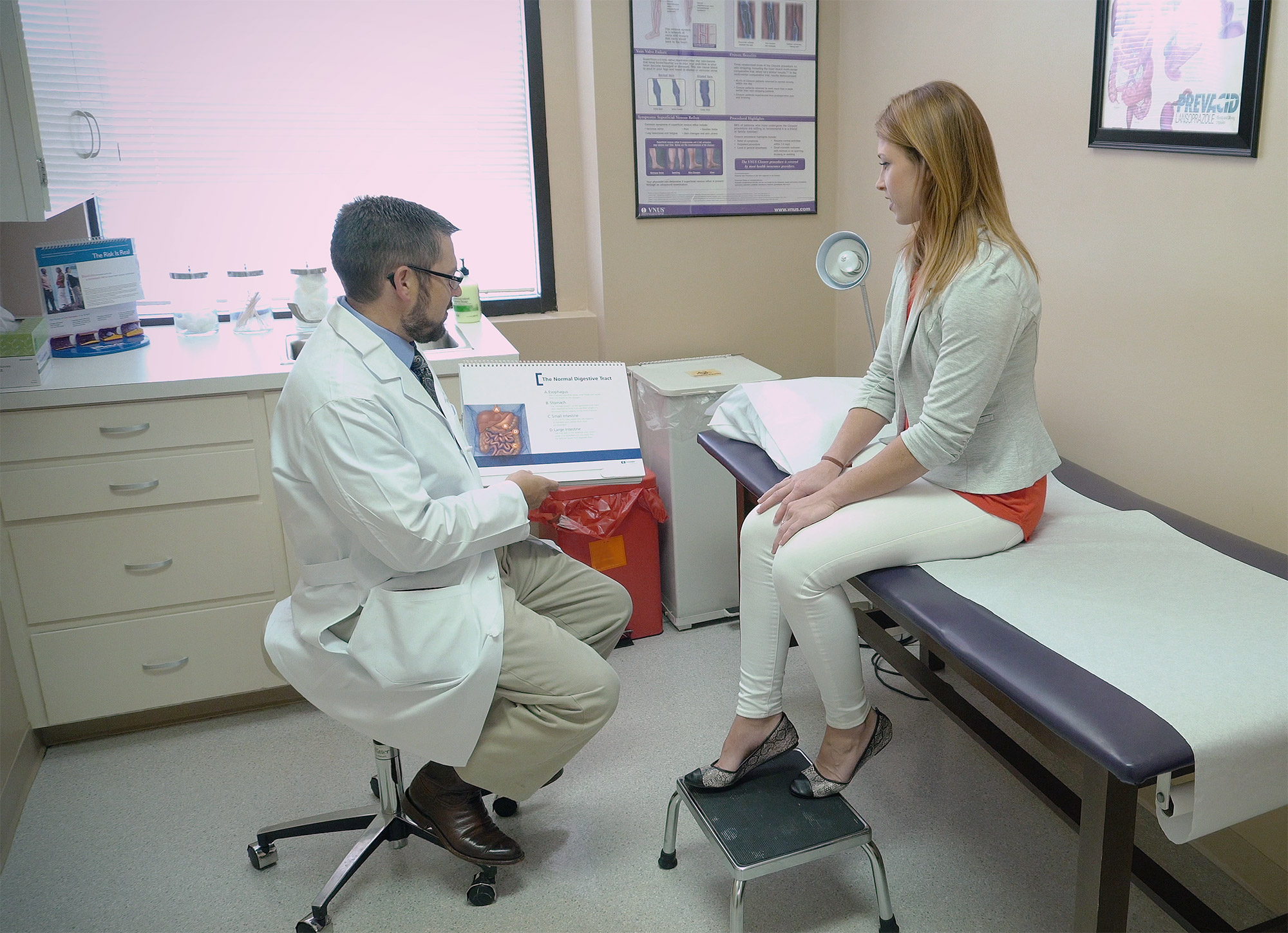Digestive Screenings
At Wiregrass Surgical, our general surgeons are experts in detecting, diagnosing, and treating digestive illnesses — especially colorectal cancer, the second-leading cause of cancer related death for men and women in the U.S.¹
The great news is that in most cases, colon cancer is preventable . However, many people are anxious about the most effective test for detecting it: colonoscopies. If you keep reading, we promise you’ll feel better about the whole process.
Who Gets Colorectal Cancer?
About 5%, or 1 in 20, of Americans will be diagnosed with cancer of the colon or rectum in their lifetime.² It is the second-leading cause of cancer related death in the U.S.
One Test Can Save Your Life
“There are more than 20 million adults in this country who haven’t had any recommended screening for colorectal cancer and who may therefore get cancer and suffer from a preventable tragedy. Screening for colorectal cancer is effective and can save your life.”
~ Tom Frieden, M.D., M.P.H., Director of Centers for Disease Control

Who should get screened?
Our surgeons have a “tough-love” message for you: please consider the risks associated with digestive problems and schedule screenings routinely. These screenings truly can save your life.
- If you are age 50 and have no colorectal or digestive disorder symptoms — bleeding, abdominal pain, change in bowel habits, weakness and fatigue, or unintended weight loss — you should have your first exam at age 50, even if you consider yourself healthy, whether you’re a man or a woman because colon cancer strikes both genders.
- If you are under age 50 but have any of the above symptoms, you should get screened as soon as possible.
- If a family member has a history of colon cancer or digestive disorders, you may need to be screened earlier than the age of 50. To help ease your concern, we offer genetic testing, which helps us identify whether you are at risk; 97% of commercial insurance plans cover the testing and we do this right in our office.
Defining Moment
Colorectal Cancer = cancer that forms in the colon (another word for the large intestine) or in the rectum (specifically the final section of the large intestine).
Digestive System = also called the gastrointestinal system, is made up of organs that collaborate to convert food into energy. These organs are the mouth, esophagus, stomach, small intestine, large intestine (including the rectum), and anus.
The Colonoscopy: No need to be afraid
A colonoscopy is simply a screening test that lets your surgeon look at the inner lining of your large intestine (rectum and colon) with a colonoscope — a thin, flexible tube equipped with a light and camera at the tip. The doctor is looking for ulcers, pre-cancerous colon polyps, tumors, or areas of inflammation or bleeding. Although other methods for colon screenings exist, the colonoscopy is the gold standard. It is the most effective way to detect colon cancer and other problems.
What to expect: Your surgeon uses colonoscope to view the inside of your colon. Tissue samples can be collected and abnormal growths can be removed right then and there. You will be mildly sedated and experience very little to no discomfort. The majority of patients don’t even recall having the procedure because their comfort was well managed. In fact, patients routinely tell us, “That wasn’t so bad after all!”
The Upper Endoscopy, A.K.A. EGD
This screening test helps your surgeon evaluate symptoms of chest pain, nausea and vomiting, heartburn, bleeding and/or trouble swallowing. It can also detect inflammation, ulcers, hernias, and tumors. An upper endoscopy is more accurate than an X-ray for discovering abnormal growths such as cancer and for examining the inside of the upper digestive system. The abnormalities found can sometimes be treated right at the time of the procedure directly through the endoscope.
What to expect: Using an endoscope, which is a thin scope with a light and camera at its tip, your surgeon looks inside the upper digestive tract, the esophagus, stomach, and first section of the small intestine. The surgeon can pass instruments through the endoscope to directly treat many abnormalities like polyps (usually benign growths). As with a colonoscopy, you are mildly sedated during the procedure, so you experience little or no discomfort.
The Combo: Why we perform the tests together
Often a combination of colonoscopy and upper endoscopy are deemed necessary to properly diagnose a medical problem. When appropriate, the surgeons here at Wiregrass Surgical prefer to perform the tests together for three reasons that benefit our patients: Typically you only have to prep once for both tests, you undergo mild sedation once instead of twice, and you’re subject to only one co-pay/deductible. We believe this is an appropriate, respectful diagnostic approach that is also the simplest process for you. Our patients’ health, savings, and convenience matter to us.
In addition, if a routine or medically necessary digestive screening reveals a diagnosis that would then require a surgical intervention, it’s comforting to know that your surgeon was involved in the process. Because surgeons are specially trained physicians that can remove the cancer and/or diseased colon, having your surgeon involved from the beginning helps you throughout your journey to recovery.
Don’t wait for the illness to strike. Give us a call.
Dial 334.793.1534 to set up your digestive screening with one of our surgeons. Drs. Fendley, Marker, and Cannon perform these procedures at Flowers Hospital and Dothan Surgery Center as an outpatient procedure.
¹U.S. Cancer Statistics Working Group. United States Cancer Statistics: 1999–2013 Incidence and Mortality Web-based Report. Atlanta (GA): Department of Health and Human Services, Centers for Disease Control and Prevention, and National Cancer Institute; 2016. Available at: http://www.cdc.gov/uscs.
²National Cancer Institute. DevCan: Probability of Developing or Dying of Cancer Software, Version 6.7.0; Statistical Research and Applications Branch, National Cancer Institute,2005
